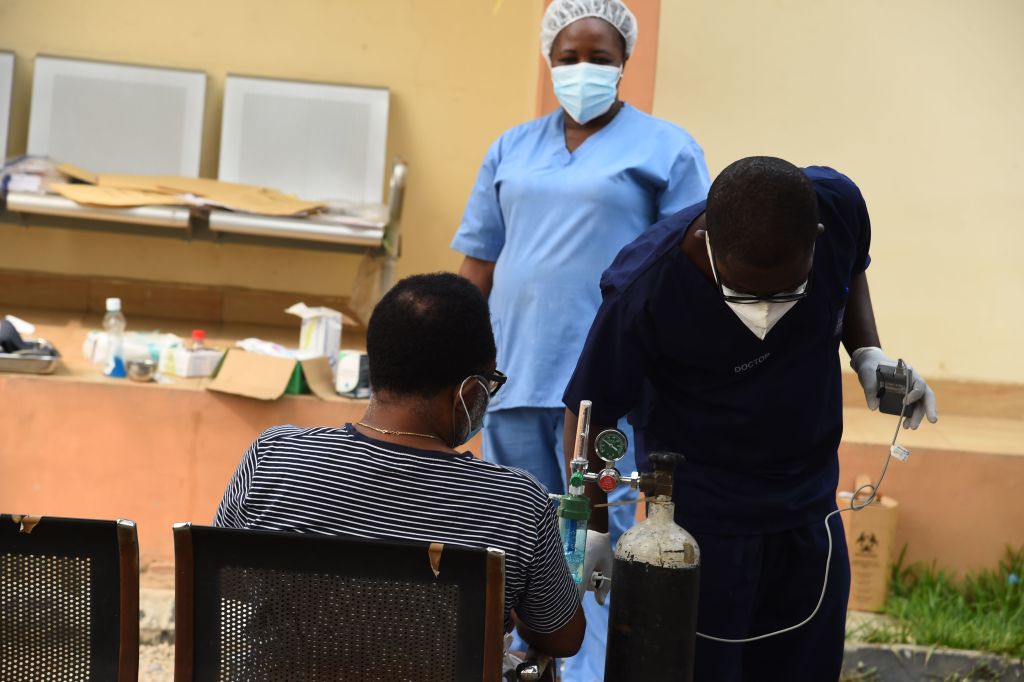ADF STAFF
Nigeria should make COVID-19 care a routine part of patient management as the country grapples with its fifth wave of the pandemic, according to Dr. Iorhen Akase.
Doing so will help reduce the pandemic’s burden to the same level as other diseases such as hypertension and hepatitis, said Akase, who heads the infectious disease unit of the Lagos University Teaching Hospital, in a report by the Nigerian newspaper Vanguard.
“When COVID care is integrated into routine patient management, it will make it not very different from someone who comes with hypertension or tuberculosis but just another disease,” Akase said. “COVID is not going away, rather, the time shall come when you come to the hospital, you will have 10 COVID-19 cases and nobody will know.”
The country’s fifth wave is driven by omicron subvariants BA. 4 and BA.5, according to the World Health Organization (WHO). Lagos State is by far the country’s hardest-hit region.
At Akase’s hospital, most recent COVID-19 patients have not required intensive care unit admission, ventilation or oxygen treatment. Akase said factors such as socioeconomics, health infrastructure, risk management and behavioral patterns are behind Nigeria’s latest wave.
Akase has battled other disease outbreaks in recent years, including HIV, Lassa fever and sepsis. He and other experts have predicted that COVID-19 eventually will become a seasonal medical issue.
“We will get to a stage where it will no longer be a big public health problem as we have seen in the past,” Akase said.
Other experts, such as Adesegun Fatusi, a professor of community medicine and public health, say a lack of adequate testing and the cost of testing also have hampered Nigeria’s pandemic response.
With a population of more than 206 million, Nigeria has reported that just more than 5.4 million people were tested for the virus as of early September, according to the Nigeria Centre for Disease Control. Between June 20 and July 3, testing in the country decreased by more than 50%.
“In terms of testing modalities, we started testing everybody using the polymerase chain reaction machine and it takes a lot of time for the result to be out but now we are using the antigen” rapid test, Fatusi, who also is vice chancellor at the University of Medical Sciences in Ondo State, told Nigerian newspaper The Punch. “What we need to do is continuously focus on the rapid test and it should be available widely. People should be able to test themselves at home.”
Public complacency also has stalled the country’s COVID-19 prevention measures, according to Johann Ojukwu, Red Cross Health and Care officer in Abuja.
“Nigeria cannot afford to let down its guard as far as COVID-19 is concerned,” Ojukwu said in a report by Nigerian newspaper Peoples Gazette. “This is because the virus is still very much around and still ravaging all parts of the country.”

